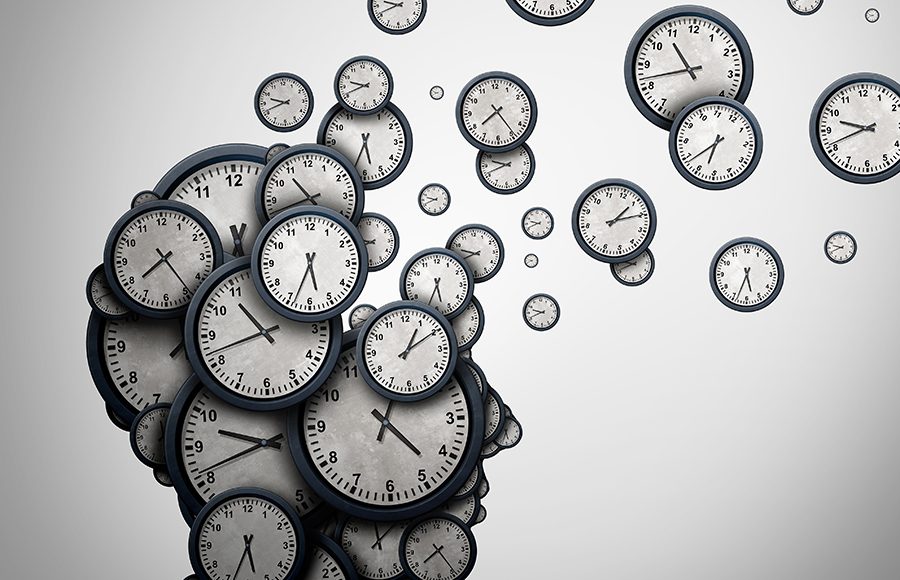By Mark Young
Einstein was asked to explain relativity. He explained it like this:
Imagine you are deeply in love. The person you are in love with must go away for 2 years, and you have 10 minutes with them before they leave. How long will it take for those 10 minutes to pass?
Now imagine you are standing at a hot stove and someone is holding your hand on it for 10 minutes. How long will it take for those 10 minutes to pass? This is relativity.
His point was that time is not real; it is a construct in our mind, and therefore it is something we experience. Now to back to the original question, why does time “seem” to move faster as we age?
Mathematically, we experience time by the square root of our age. So, each decade goes by faster than the previous. It’s all based on how our brain works.
You have two minds operating at all times, the conscious and the unconscious. The conscious mind can handle about 7 bits of information at a time, plus or minus 2. This is the reason phone numbers are 7 digits.
The unconscious mind however, can handle thousands of bits of information at one time. With this massive capacity, it becomes a pattern recognition machine. For example, you are driving to work, as you have done hundreds of times. As you are driving, your mind is not on the task at hand. You are thinking about your first meeting, a lunch appointment or what is playing on the radio.
The reason for this is that your unconscious mind has recorded this event many times and committed it to memory. So while you are busy listening to the news, your unconscious mind is safely driving you to work. It is operating without conscious thought based on pattern recognition.
However, this same skill that allows us to drive and talk on the phone is at the root of why life moves faster as we get older. The more things or actions we repeat, the more your mind tunes them out. In other words, novelty extends the perception of time.
Notice how you can remember your favorite vacation with vivid detail, but if you have been back to that same place more times, the memory is not nearly as clear. The return trips were not novel. Same goes for TV commercials. Once you have seen a commercial about 15 times, your mind literally tunes it out as if it is not there. This is because your unconscious mind says, “Skip this. We already know what it is and how it ends.”
Think back to when you were five or ten years old. It seemed to take forever for Christmas or your birthday to roll around. And think of when being sixteen and driving seemed like a lifetime away. The reason is that when you are very young, everything is novel. Life is full of first time experiences. Novelty suspends time.
Studies show that the average person who lives to the age of 80 will experience 25% of their life in the first 10 years – when everything is new.
As we get older, we start to repeat the same things over and over. As we enter into those final decades of life, people tend to become extremely routine and may essentially live the same day over and over.
The key to living the longest, experiential life is adding more novelty. When we travel to new places, make new friends, try to new foods and push ourselves outside of our bubbles, time slows down. Consequently, we then get more out of life.
Life is not just about the years lived. It is about the experiences gained within those years. There are many 40-year-olds that have already outlived some 80-year-olds.
Last modified: April 12, 2018


